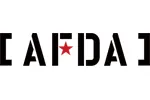

| The award | How you will study | Study duration | Course start | Domestic course fees | International course fees |
|---|---|---|---|---|---|
| BA | Full-time | 3 years | find out | ZAR 89005 total | ZAR 106005 total |
Overview
FIRST YEAR:
The first year in the BA degree is essentially about discovery and inspiration. Students are exposed to the multiple disciplines on offer in the Film, Television or Performance Schools and use the year to identify and test their aptitudinal strengths and weaknesses.
There are no limitations on the number of electives that students may attend. Discipline choices and outcomes are governed by the student's personal ambition, work ethic and enthusiasm. However, certain timetable logistics, discipline choice combinations and minimum assessment requirements may limit the student's choices.
These discipline choices are done in combination with the five Production Course components and the Assist Programme.
SECOND YEAR:
The second year is about coming to terms with the 'nuts and bolts' of the entertainment and media industries, particularly with regard to the personal discipline choices for which the student has qualified from first year.
While only a minimum of two disciplines is required for second year, this year is characterised by its rigour and intensity. Second year is often referred to as 'boot camp’ in which students' aptitudinal strengths and weaknesses are revealed and tested to the maximum.
As part of their final choice and qualification in a particular discipline for 3rd year specialisation, the student is required to meet the formal assessment requirement of Production Course and deliver discipline outcomes in their areas of specialisation.
THIRD YEAR:
The third year is called 'the year of the artist.' It is in this year that students develop their personal artistic expression in their particular area of specialization and the early deepening of artistic relationships within their peer group.
The experimental film productions and public graduation festival at a commercial cinema venue are used as a means for students to manifest and understand the challenges and opportunities that exist in both. However, it is the exhibition and promotion of a 10 to 12 minute dramatic narrative that meets the needs and wants of the intended audience that provides the true test of the year. It is here that students experience the realities and visceral qualities of the audience's response to their work, creating the first formal step towards the demands of creating commercial entertainment content for the market.
A Certified copy of SAQA Certificate of Evaluation of the applicant’s International qualifications is required for acceptance into AFDA programmes. This certificate is obtained from the South African Qualifications Authority – SAQA (www.saqa.org.za). The NQF Act, 67 of 2008, gives SAQA the mandate to, “with respect to International qualifications, provide an evaluation and advisory service consistent with this Act”.
SAQA fulfils this mandate through the Directorate of International Qualifications Evaluations and Advisory Services (DFQEAS). The work of DFQEAS helps to clarify the meaning of International qualifications for local use and links those qualifications to NQF levels so that the holders of International qualifications can take up work and study opportunities in South Africa.
Below are some suggested courses at other providers that you may also be interested in:
Graduate Diploma in Foundations of Canadian Law GDL
Osgoode Professional Development, York University
Find out moreSocial Sciences, Arts & Humanities with Foundation Year BA, BSc
SOAS University of London
Find out moreIf you do not meet the entry requirements for this course then consider one of these courses from another institution:
There are 7 other courses listed from AFDA. A selection of these are displayed below:
Higher Certificate in Film, TV and Entertainment Production University Certificate
AFDA
Find out moreFind out more about studying in South Africa